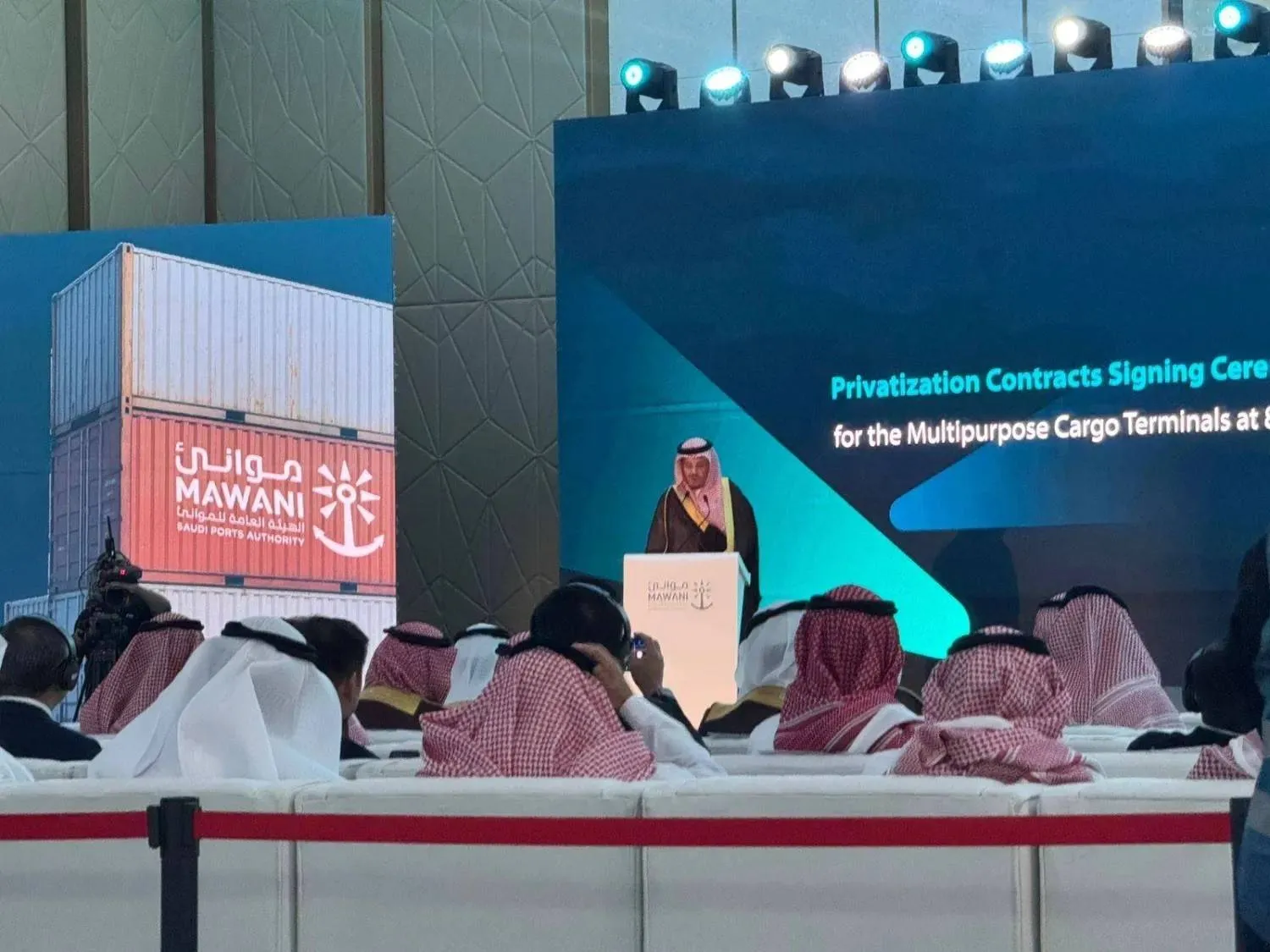Saudi Arabia’s General Authority for Ports (Mawani) has signed a series of new build-operate-transfer (BOT) contracts worth more than SAR 2.2 billion ($586.6 million) to develop multi-purpose cargo terminals at eight of the Kingdom’s ports.
Acting President of Mawani, Mazen Al-Turki, announced the deals during a signing ceremony held on Monday, describing the move as another milestone in Saudi Arabia’s continued infrastructure development under government leadership.
These 20-year contracts are part of a strategic public-private partnership, bringing together local and international investors to enhance operational capabilities and increase the handling capacity of Saudi ports. The initiative aligns with the objectives of the National Transport and Logistics Strategy, which seeks to position the Kingdom as a global logistics hub.
Al-Turki emphasized that these new agreements build upon previous privatization deals, including the development of container terminals at Jeddah Islamic Port and King Abdulaziz Port in Dammam, with investments exceeding SAR 16 billion. The Authority has also signed agreements to develop 20 logistics zones across the country, backed by over SAR 10 billion in investments.
He added that the latest contracts reflect the significant transformation and strategic evolution of Saudi Arabia’s ports, contributing to improved international performance indicators and reinforcing the Kingdom’s role as a key player in the global maritime industry.
Minister of Transport and Logistics Services and Chairman of Mawani, Eng. Saleh Al-Jasser, noted that the growing flow of private-sector investment demonstrates the attractiveness of Saudi ports and the logistics sector. He highlighted recent advancements in operational efficiency and maritime connectivity, supported by major global and national companies.
Al-Jasser affirmed that the Kingdom’s transport ecosystem will continue expanding its partnerships with the private sector across all regions and domains, with the new contracts marking the continuation of strategic collaborations with leading global and local port operators.
Under the newly signed contracts, the Saudi Global Ports Company will develop, manage, and operate multi-purpose terminals at east coast ports, including King Abdulaziz Port in Dammam, Jubail Commercial Port, King Fahd Industrial Port in Jubail, and Ras Al Khair Port.
Meanwhile, Red Sea Gateway Terminal will handle similar operations on the west coast, covering Jeddah Islamic Port, Yanbu Commercial Port, King Fahd Industrial Port in Yanbu, and Jazan Port.
At King Fahd Industrial Port in Yanbu, the agreements include modernizing cargo handling with state-of-the-art STS and RTG cranes, reach stackers, trucks, and trailers, aimed at reducing truck turnaround times, vessel berthing durations, and boosting overall efficiency.









